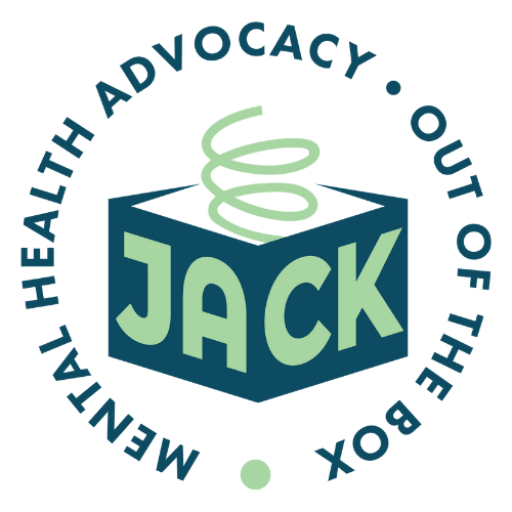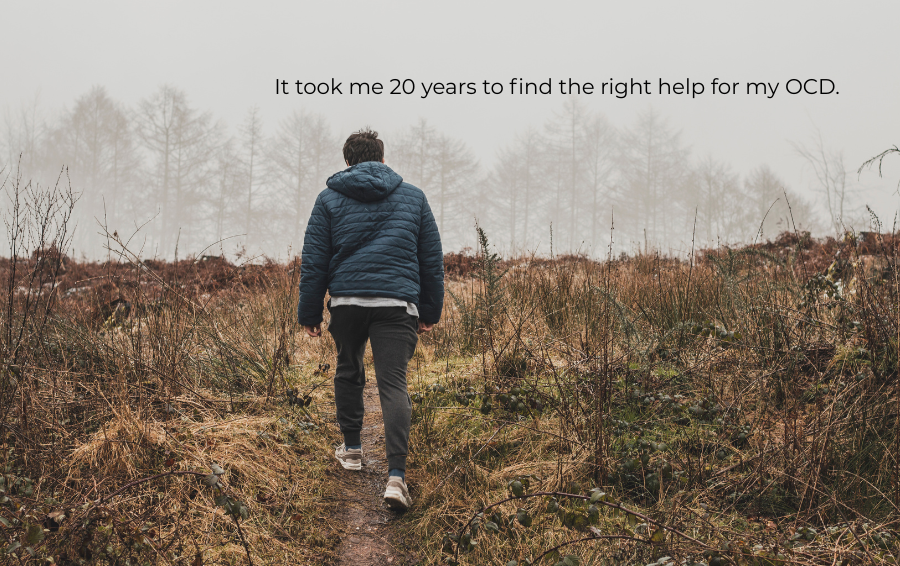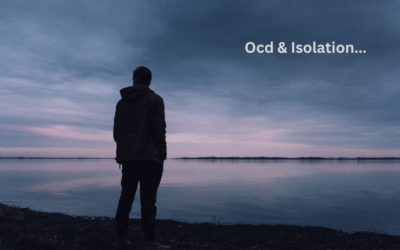POW! An extremely disturbing thought jolted into my mind. I don’t know how much I slept that night – maybe an hour at best. I was 13 years old. Had this happened today, I would have brushed it off as noise – mental clutter. However, at age 13, I was untrained and unprepared for what was in front of me.
OCD Compulsions to Reduce Anxiety
This was the start of my journey dealing with obsessive compulsive disorder (OCD), which is estimated to affect 2-3% of the human population. In the OCD context, the word “obsession” has a different meaning from the general understanding of the word. An obsession is not something that an OCD sufferer wants or enjoys. At a basic level, an obsession is an intrusive thought that does not align with one’s values. Of course, many people without OCD have intrusive thoughts. For example, you might have a thought about someone dying, find it unpleasant, and brush it off. However, someone with OCD might find such a thought so distressing that they lock onto it and analyze it incessantly – to such a degree that it could ruin their life.
Those of us with OCD engage in compulsions to reduce the anxiety that accompanies the intrusive thought. Just as different individuals have different intrusive triggers, the nature of the compulsion depends on the person. One might feel a need to repeat phrases in their head, touch an object a certain number of times, wash their hands repeatedly, or do some other behavior. A compulsion is an activity that the person doesn’t like doing – or at least not at the frequency or intensity that OCD demands.
OCD is Not an Adjective
Individuals with OCD – absent any co-occurring conditions – are in control of their faculties at all times. We generally know that the compulsions are illogical. This is why traditional “talk therapy” is often unhelpful – and sometimes harmful – for an individual with OCD. Even if you tell someone with OCD that a harmful event has a 99.99% chance of not happening – and even if they believe you – they will focus on the 0.01%. We are NOT talking about a simple preference for cleanliness or a minor personality quirk. We are talking about brains that work differently – along with potentially debilitating anxiety. What is generally the quickest way to annoy an individual with OCD? Tell them you’re “sooooo OCD” or “a little bit OCD” about cleaning your house. OCD is not an adjective – it is a legitimate condition, diagnosable by a medical professional.
Despite the term “disorder,” individuals with OCD have a superpower: the ability to face terrifying situations and prevail over their fear. Don’t ever make the mistake of assuming that because OCD involves anxiety, that the person with OCD is weak. The gold standard of evidence-based OCD treatment is “Exposure and Response Prevention” (ERP). In ERP, we don’t push away the anxiety. Rather, we invite the fear into our brains. We lean into our fears, sit with the anxiety, and push ourselves to refrain from engaging in compulsions. This takes an incredible amount of strength, built over time through education and support from a qualified therapist.
“Why did I put myself through what some might consider self-torture? Because I learned that if I didn’t do this hard work, my world would get smaller and smaller.”
What I’d Tell My 13-Year-Old Self
It took me 20 years to find the right help for my OCD – and the right help was ERP. Other approaches gave me some relief – and continue to be useful to some extent in my self-care – but ERP was really transforming for me. Decades since that frightful night at age 13, I know that the only way to beat the anxiety is to push through it, even when I want to run away because of that pit in my stomach. Why did I put myself through what some might consider self-torture? Because I learned that if I didn’t do this hard work, my world would get smaller and smaller. What I could have lost by avoiding ERP pales in comparison to the hard work of getting in the ring with my OCD and daring it to take its best shot.
The goal of ERP is never to reduce anxiety. That can be an effect of ERP, but anxiety is always a part of life, with or without OCD. Even though I’ve been in remission for several years, I know that I’ll always have some bad days – just like anyone else is entitled to a bad day. However, now I also have tools to manage the OCD and keep it from taking over my life.
If you have OCD, keep in mind the following advice, which has been stated in various forms, by individuals ranging from Mark Twain to Franklin D. Roosevelt to Nelson Mandela. Here’s my version: Courage is not the absence of fear, but the ability to push forward even while you are afraid!
Thanks Dave!






